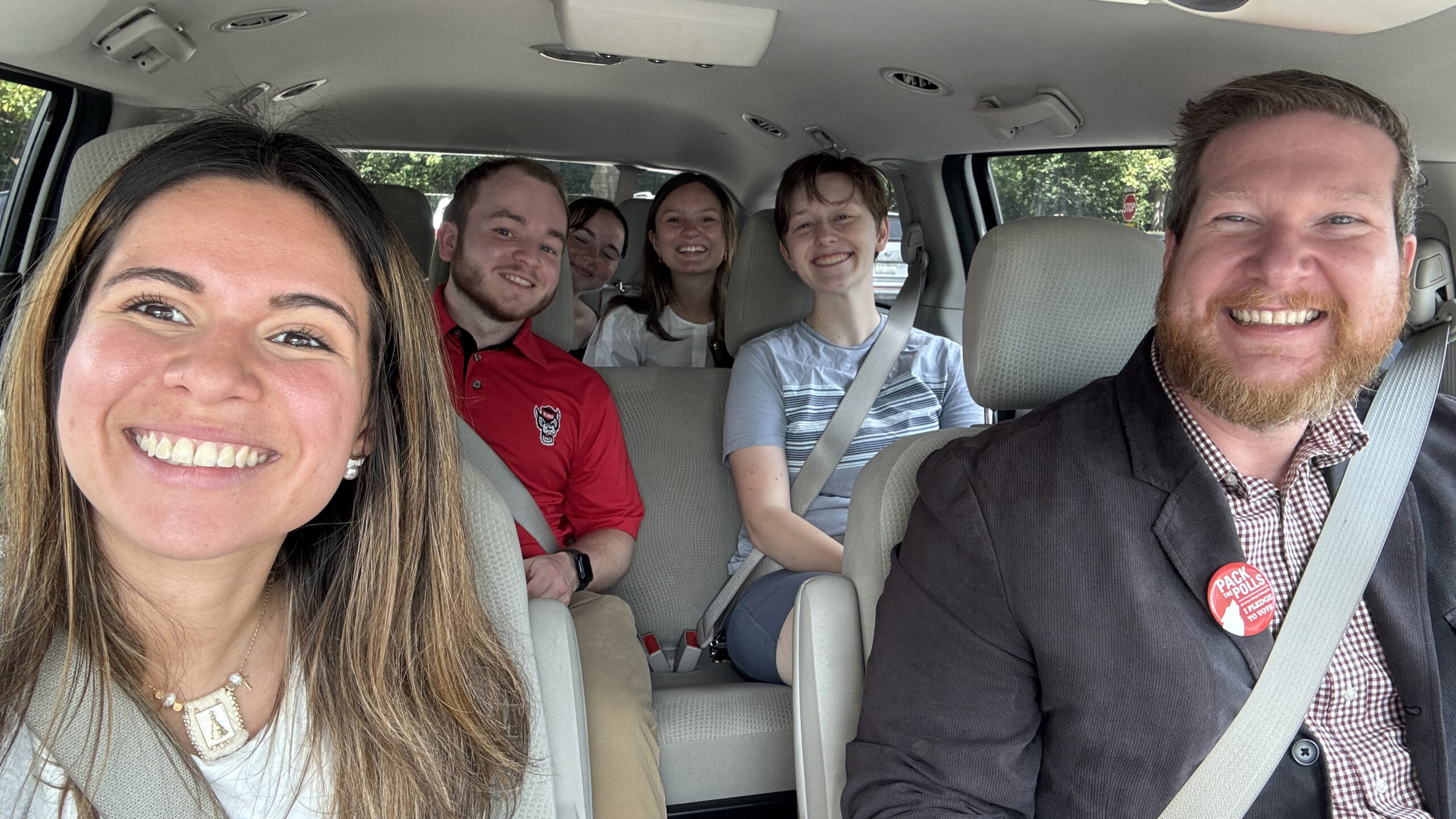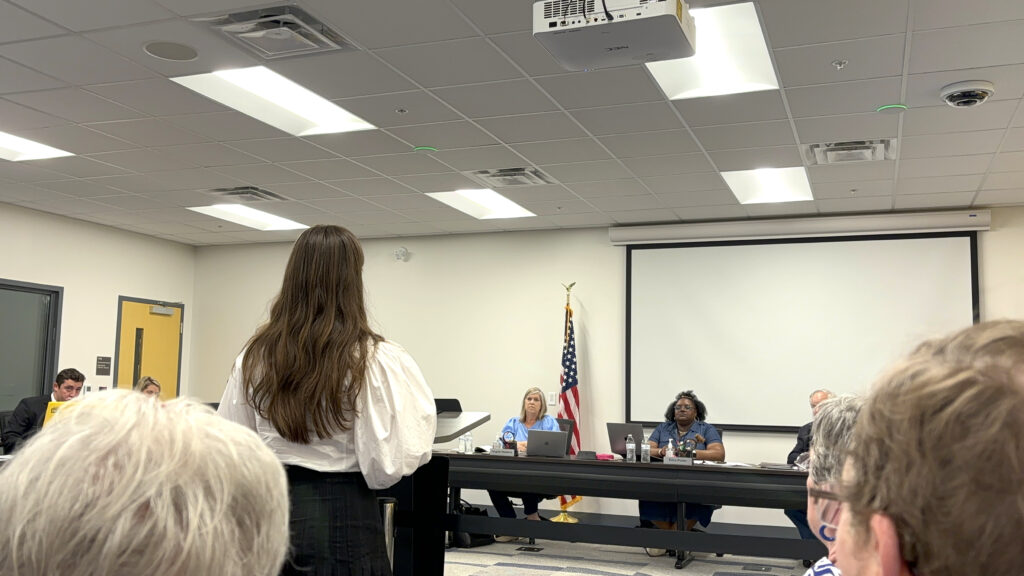
Since 2017, Talley Student Union has served as an early voting site in mid-term and general United States elections, allowing NC State students, faculty and staff an easy, accessible, convenient location and method to fulfill their civic responsibilities.
Despite Talley’s longevity as a voting site over that span, the ability to vote there each year is not a given. The Wake County Board of Elections must vote on all voting sites, Talley included.
This spring, a group of five NC State students part of the non-partisan Pack the Polls program, under the guidance of Student Leadership and Engagement Associate Director Brian Mathis, went to one of the board’s sessions and made remarks advocating for the continuation of Talley as an early voting site.
The cohort included Syd Fryer, Park Scholar in the Class of 2026, as well as Miroslava Colan, Will Cowan, Olive Ruani and Millie Walkenhorst.
Syd is from Charlotte, NC, and is majoring in International Politics. She is also pursuing her master’s in Spanish Language and Literature.

“As an educator, my focus is not only am I coordinating with those logistics, but I see this as our role within the Division of Academic and Student Affairs and NC State to provide this educational opportunity for students to understand how to take an issue in their community that they are passionate about, that they have concern about and use their voice and advocacy to effectively address governing bodies such as the Wake County Board of Elections,” Mathis said.
The students’ advocacy was successful, as, this fall, Talley will once again serve as a voting site.
Working with the Pack The Polls initiative and speaking to the Board of Elections is a way for Colan, a graduate student pursuing her master’s degree in international studies in the School of Public and International Affairs, to inspire NC State students to stand up for issues that are important to them.
“It’s only a matter of sitting down and thinking about what youth are interested in and making those hard topics that they might not be interested in feel interesting,” Colan said.

As an international student from Venezuela, advocacy has long been a part of Colan’s life. She began advocating for important issues at the age of 16 in her home country and knew she wanted to continue that in the United States.
“It’s been a tremendous experience in which I have been able to develop myself and take off all those fears of being an international student but also advocating,” Colan said. “You can advocate in America, where freedom and democracy are main values. I think that advocating for students who can vote and youth who can be involved and making it easier for them to get access to voting rights, for me, was an experience in which I was able to speak out for others even though I cannot vote, but realizing that advocating is also a way to engage and to defense those voting rights.”
As Colan alluded to, she cannot vote in North Carolina as an international student.
However, that fact does not deter her advocacy; it only strengthens it. Central to Colan’s graduate research is how voting rights are critical to facilitating the integration of immigrants into the United States.
“Youth as a whole, no matter their nationality, where they come from or their background, are the change of any country in the world,” Colan said. “In the United States, only a few states allow non-citizen immigrants to vote in local elections. I’m researching immigrants’ political and civic rights, specifically voting rights, and how this facilitates their integration. So for me, advocating for an early voting site on campus to involve and include youth in this decision-making process is a step closer to that goal.”
Mathis said Colan’s work is an important reminder that civic education is not exclusive to United States citizens and that her perspective brings tremendous added value to the discussions.
“Miroslava uses her international perspective as a student from Venezuela to be able to say that voting and democracy should not be taken for granted, and she can speak to her own personalized, international experience, where those rights had been infringed upon in Venezuela,” Mathis said. “So I think using her experience to help share and help our undergraduates understand that this is something precious and something to be careful and thoughtful about.”
Mathis called the experience of speaking to the elections board part of the Division of Academic and Student Affairs’ co-curricular experience, as many of the students involved are not political science majors.
Ahead of the session, Mathis instructed and coached the students on addressing a governing body, including using particular rhetoric to gain public support.
“Part of my goal is to equip them with those life-long skills so that 10 years from now when they’re graduating and there’s a concern facing whatever city they’re living in, that they’re speaking up in city council or they’re writing to their representative,” Mathis said. “So they’ve learned that here at NC State to continue to advocate for communities in the future.”
Thanks to those students’ advocacy, members of the NC State community will once again have the opportunity to perform their civic duty conveniently on campus when early voting starts this fall.
“I’m very proud of them,” Mathis said. “They’re really thoughtful. The students not only recognize what they want out of the early voting site, but they understand that this is a public good that benefits all members of Wake I think that demonstrates a level of maturity and service to others, service to the community that we’re trying to instill in our students. It’s not all about self-serving or just centered on the student experience, but really about how it benefits everyone.”